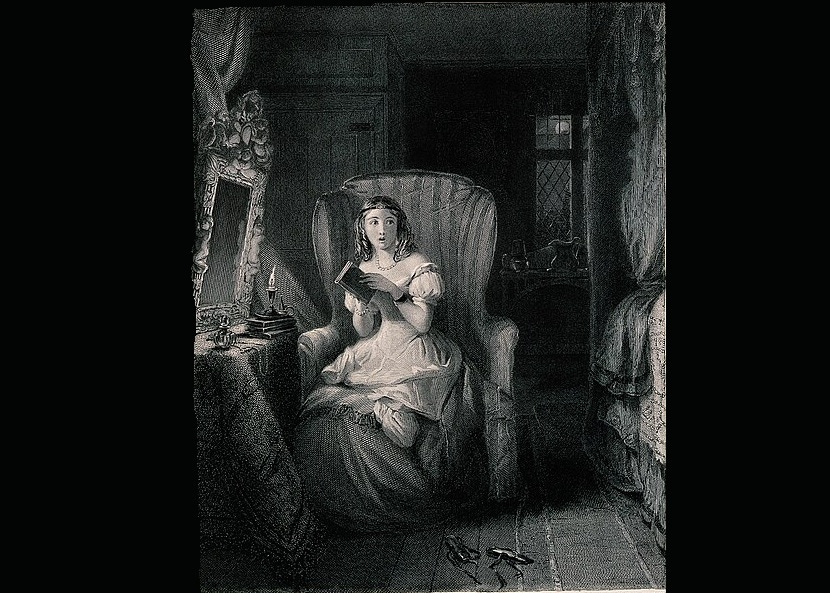Sorcery and Subtlety
A range of spells
A beautiful young woman is sent to a distant castle in the countryside. She hears tales about a curse laid on it, and watches the members of the family succumb to mysterious accidents, and survives only because her beloved arrives and carries her off.
Ah, a Gothic novel, the reader knows at once. A fantasy? Much harder to tell. While any fantastical element not justified by appeal to the authority of science makes the work fantasy, there is a borderline of things where the magic is hinted at, but possibly not present. (Some ill-conditioned souls interpret fantastical elements as symbolic or signs of insanity at the drop of a hat, but there really are works in which they are intentionally ambiguous.)
Or, perhaps, a band of intrepid adventurers arrive at the distant castle, jeer at the story that a kidnapped damsel cursed the castle before her death because she didn’t have a character class let alone a spell-slinging one, detect magic on the castle, and cast a remove curse, clearing up that little problem.
Ah, a Gamelit novel. Obviously fantasy, obviously run by RPG rules, possibly including characters brought into the world from another, with clear magic, down to the very clear rules by which it runs.
Which encompasses a great range that fantasy can fall between. All the more in that you don’t actually have to pick one. A fantasy work can have a utility wizard who can find wedding rings and purify wells while the castle looming over all is a desolate ruin because it was cursed.
Perhaps the wizard can even explain that such subtle spells take a long time to unravel, and the breaking fits the curse like a key to a lock, so it’s of little use once you have it -- and it can take a year and a day, seven years, or even a lifetime to work out the spell that will break it.
Hence, breaking it tend to fall into the laps of those who are not wizards. The ones who do all the tedious work of investigating what went wrong, and how to set it right.
Like casting it. Perhaps the gift of wizardry only means that you can use simpler and more economical means than the age-old art of subtle magic. Which can, indeed, be cast in short times, but only by those deeply passionate about a matter. So that when the lord abducted a village maiden, and her beloved rescued her only for the lord to have her shot with arrows as they fled, his curse could fall on the castle though he was no wizard.
It doesn’t have to be curses. Wizards may mutter how about the hedge wizards shouldn’t be able to increase crops without leaving visible magical traces, but they can’t deny that they do.
A wise-guy writer can have one fulminate that the hedge wizard advises planting a field in clover and using it as pasture for a year. Or if you have a field with yellow-flowered weeds that aren’t that yellow, and other plants are putting forth new leaves that are yellowish, the hedge wizard tells you to treat it with a mixture he gives -- a mixture containing brimstone no less! (Yellow wildflowers grow less yellow, and new leaves yellow, when the soil is sulfur deficient.)
If, however, you want the hedge wizard to be actual magic rather than secret science, you can have him offer charmed metal plates to be buried in the field, or beads like blue eyes, and the wizards have to concede that while neither show any sign of magic, the crops grow better with the plates, and misfortunes said to be caused by the Evil Eye are less common when people wear those beads.
It is wise to note that subtle magic is either a background element or the main matter of a plot -- or at least a subplot. If a hedge wizard is handing out the plates in the spring, this can be background color. But if a mysterious man shows up and offers charms to farmers, and the king sends our heroes off to investigate whether he is a fraud, or possibly causing the ills he purports to alleviate, the nature of this man and his charms are front and center, and until you get to the bottom of it, the story is not over, and it’s hard to distract from.
Such is the nature of mysteries, involving magic or not. If you want to use magic as a plot device, make it as subtle as a sledgehammer.


